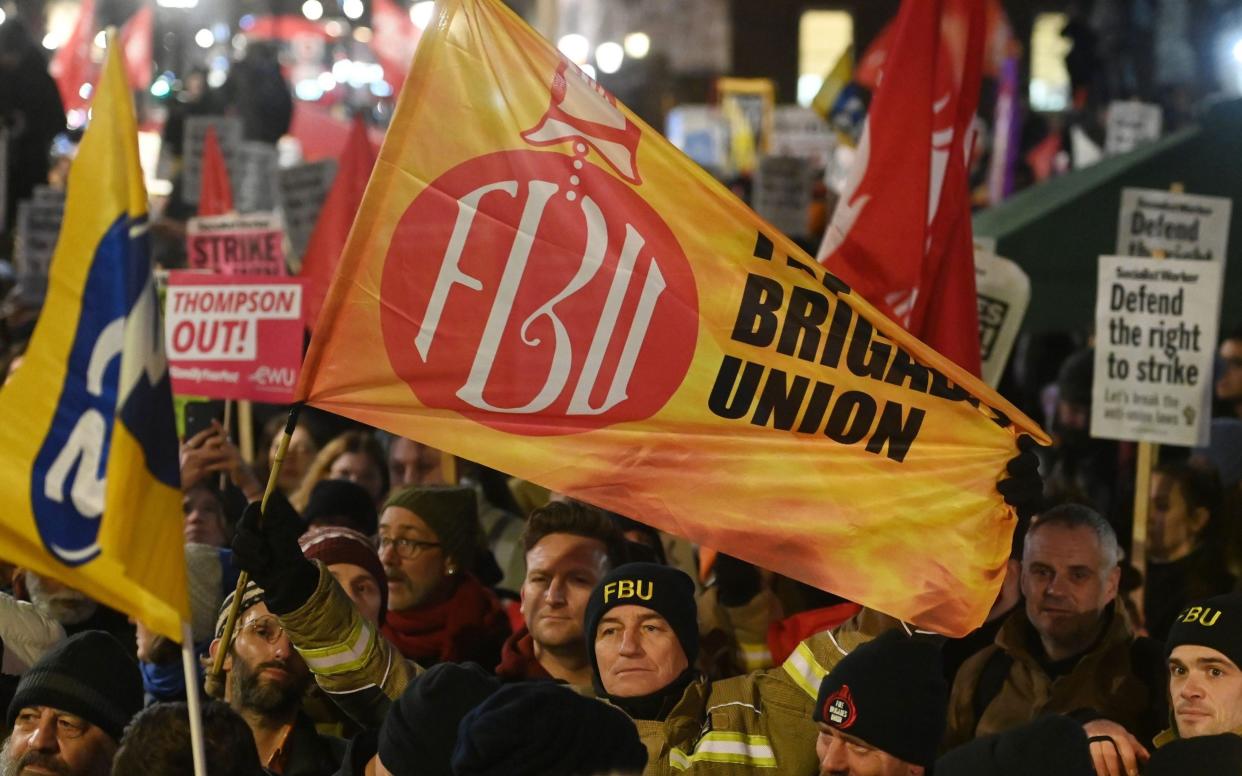Cleaners could respond to 999 calls if firefighters go on strike

Cleaners and HR staff could be deployed to respond to 999 calls during a firefighters’ strike, The Telegraph has learned.
With the Fire Brigades Union (FBU) set to close its ballot on Monday, union leaders are understood to be confident they will reach the threshold required for industrial action.
This means that firefighters would be the next major public sector group to walk out as soon as next month.
Fire services around the country have been training up their own back-office staff to bolster front-line services in the event of industrial action.
This could include those working in finance, human resources, building safety work or cleaners or “anyone else who is prepared to step forward”, said Mark Hardingham, the chairman of the National Fire Chiefs Council.
Staff trained to ‘provide basic level of cover’
He told The Telegraph: “These are members of the fire and rescue service who might not be trained firefighters but can be trained up to provide basic level of cover.
“The fire service would still carry the liability, so you can’t just take anyone. They need a basic level of fitness and they need to pass a health assessment.
“There is a programme of training lasting on average two weeks, and not everyone will pass that. A lot of services are already doing this now.”
Mr Hardingham said that fire services are also establishing “contingency crews” by recruiting temporary staff from private companies to provide cover on strike days.
“Some services have contracts with third parties who can provide firefighters with a limited degree of training who can come in to provide cover,” he said, adding that these tend to be large outsourcing firms.
Another option is to call in the Army, although military chiefs have already expressed dismay at soldiers being treated as “spare capacity” to plug staffing gaps during industrial disputes.
Admiral Sir Tony Radakin, the Chief of the Defence Staff, said last month that the military needed to focus on its primary role as the war in Ukraine continues to rage.
He said: “We’re not spare capacity, we’re busy and we’re doing lots of things on behalf of the nation. We’ve got to focus on our primary role. It would be slightly perilous to rely on defence to be doing all of these things as the ultimate backstop.”
In 2021, a watchdog recommended that firefighters should be stripped of their right to strike after warning that Seventies-style trade unionism was stopping progress.
Sir Tom Winsor, who was the Chief Inspector for Fire and Police Services at the time, said that the public was not being served as well as they should be because of “outdated” and “restrictive” union practices.
In his annual report on the fire service, he cited examples of protracted negotiations over new working practices delaying by three months the deployment of firefighters to help vulnerable people during the pandemic.
Sir Tom said that fear of the union withdrawing labour had even seen officers being offered a two per cent pay rise to handle marauding terrorist attacks – effectively paying them twice for duties that were already “squarely within the established role of a firefighter”.

